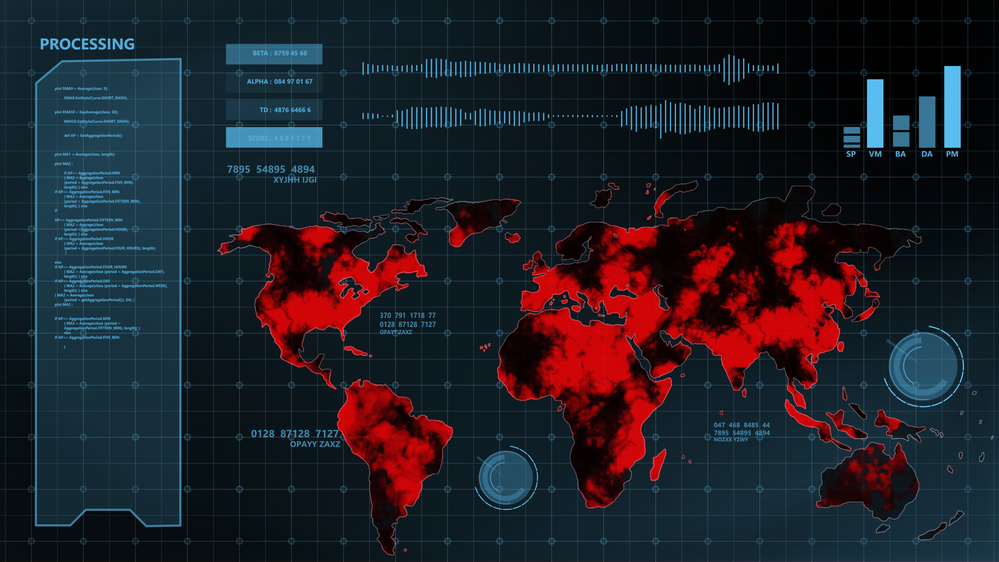Israel’s Ministry of Finance hosts a cyber pandemic exercise similar to Cyber Polygon, where 10 countries, the IMF, BIS, and the World Bank simulate a cyberattack on the global financial system.
Held in Jerusalem on Thursday, the cybersecurity training exercise dubbed “Collective Strength” was aimed at increasing international “cooperation that could help to minimize any potential damage to financial markets and banks,” according to a Reuters exclusive.
Participants included members of the International Monetary Fund, the Bank of International Settlements, the World Bank, Tel Aviv’s BeST crisis management software company, and treasury officials from the nations of:
- Austria
- Germany
- Israel
- Italy
- The Netherlands
- Switzerland
- Thailand
- The United Arab Emirates
- The United Kingdom
- The United States
The cyberattack simulation was originally slated to take place at the Dubai World Expo, but according to Reuters, it was later moved to Israel “due to the Omicron variant of COVID-19.”
“A lack of cybersecurity has become a clear and immediate danger to our society worldwide” — Klaus Schwab, Cyber Polygon 2021
Coincidentally, Dubai is where the World Economic Forum (WEF) held its Great Narrative Meeting, where WEF Founder Klaus Schwab called on fewer than 50 unelected globalists to craft a great narrative for humankind in November, 2021.
Before that, Schwab gave the opening remarks at the Cyber Polygon 2021 cybersecurity training exercise in July — a simulation similar to “Collective Strength” — where he announced that “a lack of cybersecurity has become a clear and immediate danger to our society worldwide.”
A year prior, at Cyber Polygon 2020, the WEF founder warned, “We all know, but still pay insufficient attention to, the frightening scenario of a comprehensive cyber attack, which would bring a complete halt to the power supply, transportation, hospital services, our society as a whole.”
“The COVID-19 crisis would be seen in this respect as a small disturbance in comparison to a major cyber attack,” he added.
“We all know, but still pay insufficient attention to, the frightening scenario of a comprehensive cyber attack, which would bring a complete halt to the power supply, transportation, hospital services, our society as a whole” — Klaus Schwab, Cyber Polygon 2020
Yesterday’s “Collective Strength” simulated attack on the financial sector is a continuation of global efforts to prepare the public and private sectors for a coming cyber pandemic that would wreak havoc over all of society.
“This is the first time that such a simulation is conducted, with this vast amount of participants and such extreme financial-cyber scenarios,” Israel’s Head of Financial Innovation and International Engagement, Rahav Shalom Revivo, wrote on LinkedIn.
“All cooperating and collaborating together in order to maintain the resilience and stability of the financial eco system,” she added.
The language coming from Revivo mirrors that of Schwab’s message of resiliency and stability when he called for a great reset of society and the global economy in June, 2020.
The World Economic Forum has been exceptionally prophetic in preparing for crises just before they happen.
For example, just a few months before the COVID-19 coronavirus outbreak, the WEF, along with the Johns Hopkins and the Bill and Melinda Gates Foundation, held a fake pandemic exercise on October 18, 2019 called Event 201, which specifically simulated a coronavirus pandemic to gauge global preparedness.
Many scenarios coming out of Event 201 became reality in 2020 including government lockdowns, social media censorship, global economic crashes, and societal upheaval — all ingredients being necessary to usher in a great reset.
And in the same style as the Event 201 simulation, yesterday’s “Collective Strength” simulation also included mock news reports — this time about a scenario that “caused chaos in global markets and a run on banks,” according to Reuters.
“A cyber attack with COVID-like characteristics would spread faster and farther than any biological virus” — World Economic Forum
The unelected global elites have been saying for years that a cyber pandemic is not a question of if, but when.
According to the WEF, COVID-19 was known as an anticipated risk, and so is its digital equivalent.
What’s more, “A cyber attack with COVID-like characteristics would spread faster and farther than any biological virus. Its reproductive rate would be around 10 times greater than what we’ve experienced with the coronavirus.”
Discussions from last year’s Cyber Polygon exercise centered around the globalists’ continued call for public-private collaborations, the adoption of digital identity schemes, and the desire to censor “misinformation” that went against authoritative messaging.
This year’s Cyber Polygon 2021 concluded with discussions paving a path towards a greater centralization of power and surveillance that furthers the great reset agenda of the global economy and all societal structures.
They included a desire to immunize the internet, demonize cryptocurrencies, and prop-up centralized systems of governance through a closer merger of corporations and states (public-private partnerships).
Cyber Polygon furthers great reset agenda of centralized power & surveillance
Prepping for a cyber pandemic: Cyber Polygon 2021 to stage supply chain attack simulation
A timeline of the great reset agenda: from foundation to Event 201 and the pandemic of 2020













